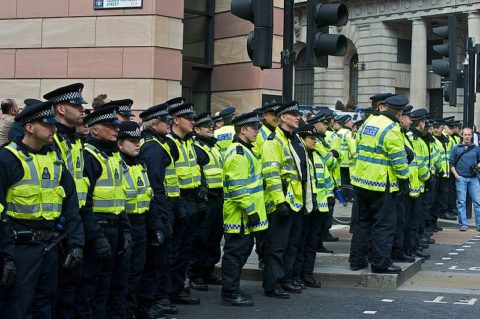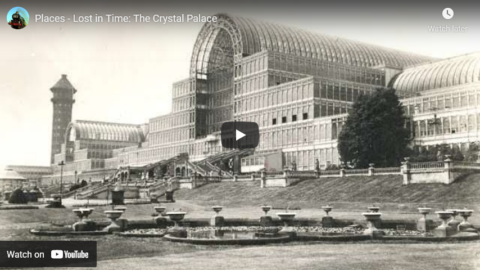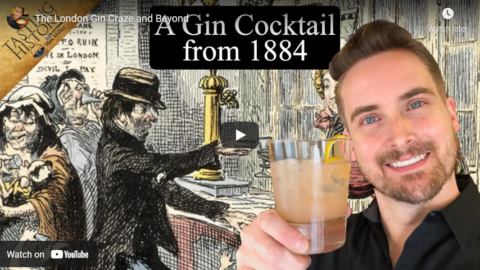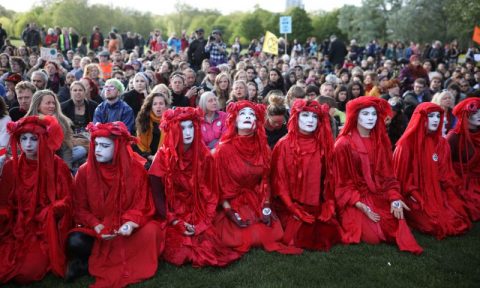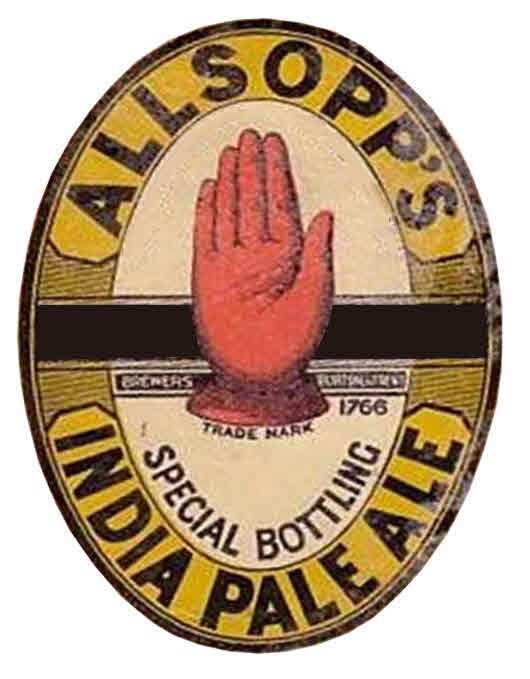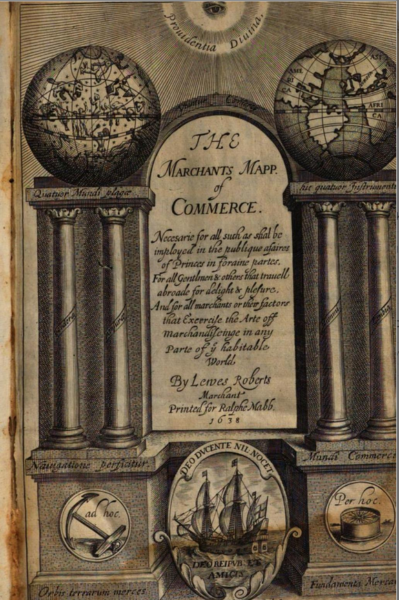To understand the green movement, really understand it, you could do worse than look at the photographs of today’s vast tailbacks on the M25. Here were thousands of ordinary people – workers, deliverymen, mums and dads, holidaymakers – delayed for hours by the self-righteousness of middle-class greens. Activists from a group called Insulate Britain – which, almost comically, agitates for the insulation of British homes – blocked various junctions on the M25, causing distress to people who had places to be. It was eco-elitism distilled: the sanctimonious zealots of the green religion disrupting the lives of the plebs to make some daft point.
The first notable thing about today’s act of public nuisance masquerading as a protest was the hilarity of the campaign group itself. Remember when radicals fought for higher wages or better working conditions or for a revolution to replace capitalism with something else? Not anymore. Today’s self-styled militants demand the insulation of houses. “What do we want? The creation of a thermal envelope in people’s homes! When do we want it? Now!” What a crock to go to the barricades for. Also notable is the irony of supposed planet-lovers causing so much pollution by forcing hundreds of cars and trucks to sit still for ages, chugging fumes into the air for nought. Well played, greenies.
But the most striking thing about these kinds of protests is their sheer arrogance. Their inherently anti-democratic, anti-masses nature, where the aim is always, but always, to inconvenience the little people and teach us a lesson. You’re on your way to Heathrow for a much-needed jaunt to Malaga to escape the stresses of work? Not anymore, you’re not – the eco-elitists blocked junction 14, which leads to one of Heathrow’s terminals. You’re a knackered trucker who’s been driving all night long and now wants to get back to his family? Tough shit. These plummy alarmists have decided to make you the collateral damage of one of their narcissistic stunts.
Brendan O’Neill, “Environmentalism is a revolt against the people”, Spiked, 2021-09-13.
December 14, 2021
QotD: Insulated from reality
December 9, 2021
QotD: “The Knowledge” of London’s licensed cab drivers
It is not a simple question of regulation and laissez-faire. Regulation can result in an excellent service, better than what an unregulated service might have provided. London’s licensed taxi drivers are, in my experience, the best in the world, for example, and this is due to proper regulation. To obtain a license to operate, they have to master the Knowledge: learn the street plan of London — as higgledy-piggledy as that of any city in the world — not only in theory, as an abstract mental image, but in actual practice. This usually takes them three years, spent driving around the city, day in, day out. When finally they think that they have mastered it, they are examined — often by a retired policeman — and have to be able to say how they would get from A to B, or from C to D, not only by the shortest but also by the quickest route. Only then (and provided they have no police record) are they granted a license.
Obtaining the Knowledge is a formidable intellectual feat: indeed, neuroscientists have used it to demonstrate by brain scans differences between London taxi drivers and others in the possession of spatial knowledge and powers of orientation. And the result of the regulation requiring the Knowledge is that London taxi drivers, besides being small businessmen working largely on their own account and therefore committed to their profession, are generally intelligent, capable men. No doubt the advent of GPS will reduce the need for much of this effort, at least among unlicensed drivers, who were never required to have it anyway. The license was, and is, a guarantee of quality; and the point remains that regulation is not sometimes without benefit to the public.
What do the regulation of London taxi drivers and the success of the vaccination program have in common? I think that it is in the clarity, but also in the modesty, of their goals. The object of the regulation of taxi drivers, for example, is to produce a large cadre of drivers who provide an excellent public service — and the means to achieve this object are unmistakably and obviously connected to that goal. Any group comprising tens of thousands of human beings will contain some who fall below, even much below, the standard desired, but I know of no profession whose members more approximate its ideal. The drivers are justly proud of what they are. There have been no efforts to make saints, or even good people, of them; all that is required is that no ill be known of them and that they have the requisite knowledge. In 50 years of taking London taxis, I’ve never had a bad experience and have had innumerable good ones.
Theodore Dalrymple, “A Cure for Government Incompetence”, City Journal, 2021-08-30.
November 30, 2021
The Elgin Marbles
In The Critic, Zachary Hardman outlines the history of the Elgin Marbles and why the Greek government is re-opening the campaign to retrieve them from the British Museum:
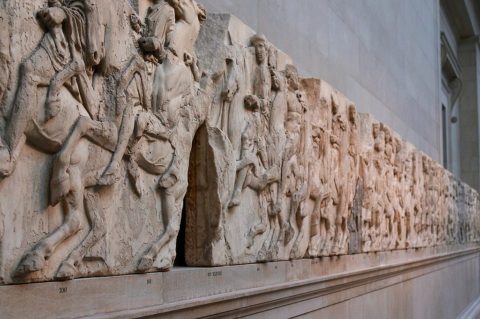
Some of the sculptures in the Elgin Marbles collection on display in the Duveen Gallery of the British Museum.
Photo by Paul Hudson via Wikimedia Commons.
Last week, the Greek Prime Minister, Kyriakos Mitsotakis was in London, with only one thing on his mind: the return of the so-called “Elgin Marbles” to Athens. 2021 is the two-hundredth anniversary of Greek independence, when the country liberated itself from the yoke of the Ottoman Empire and, for Athens, there would be no better birthday present than the restitution of the lost marbles.
The dispute about their rightful ownership is as old as the modern Greek state. In the early 19th century, the British Ambassador Lord Elgin was granted permission by Athens’ Ottoman rulers to remove half the remaining marble sculptures from a frieze on the Parthenon, the ruined ancient temple, which still adorns the Acropolis, the rocky outcrop overlooking the city.
Elgin had the marbles shipped to Britain. The journey, though, proved difficult. They were transported via Malta where, following a shipwreck, they spent a brief sojourn at the bottom of the Mediterranean Sea. The rescue mission was ruinously expensive. Elgin intended to furnish his ancestral Scottish home with the marbles. On second thoughts, though, he cut his losses and sold them to the British Museum.
Public opinion was divided. Lord Byron wrote two poems denouncing Elgin. His supporters, meanwhile, claimed the marbles were saved from further damage at the hands of warring Greeks and Turks, who didn’t appreciate them anyway. The Greeks, understandably, took a dim view of this. Since the 1980s they have waged a sustained PR offensive for the return of the marbles. An impasse, though, remains.
To break it, Mitsotakis would do well to consider the insights of the ancient rhetoricians. Athens, of course, was the birthplace of not only democracy, but rhetoric: the art of persuasion. The philosopher Aristotle, who wrote the original guidebook on the subject, said it was about identifying “the means of persuasion in any given case”. It is the task of modern Athens to work out who it must persuade and what of.
The fresh campaign began with the Government. In Downing Street, after all, lives a man Mitsotakis regards a “true philhellene”. The return of the marbles, the Greek Prime Minister said, after a meeting with Johnson, would be a “coup” for “global Britannia”. Flattery, however, has its limits. The British Government is unwavering in its support for the Museum. Mitsotakis, however, was undeterred.
October 22, 2021
Explaining why British police clearly favour road-blocking protestors over the rights of ordinary Britons
In The Critic, Andrew Tettenborn believes it can be traced back to a change in the oath that new police constables take and the changed emphasis in police training to support that change:
Last week Insulate Britain magnanimously announced it would suspend its forcible road-blocking campaign. Apart from noting the impudence of this announcement (remember the IRA sanctimoniously calling its Christmas ceasefires, as if this were something we should be grateful for?), commentators on Twitter, the tabloid press and indeed many of the general public, have found another question troubling. Why, in the face of deliberate criminality aimed at discommoding ordinary people (most of whom will have been less well-off than many of the protesters), did the police hold back, at times apparently chatting with the obstructionists and threatening with arrest any exasperated driver who tried to take steps to remove them? We aren’t told, but we can make some educated guesses.
[…]
Nearly twenty years ago in 2002, there was a subtle, little-reported but very symbolic change in the oath sworn by all constables on appointment. Instead of the 19th century undertaking to serve the Queen “without fear or favour, malice or ill-will” in the course of keeping the peace and preventing crime, there is now a much more tendentious promise preceding the duty to keep the peace: namely, to act with “fairness, integrity, diligence and impartiality, upholding fundamental human rights and according equal respect to all people”. This requirement, thoroughly reflected as it is in police training today and imbued in policing culture, has two effects.
One is that all officers must keep at the front of their minds not only the law of the land but also two other guidelines: considerations of fairness and equality (whatever those mean), and human rights laws — something peculiarly complex and frequently opaque, even to lawyers. Human rights laws involve a subtlety well beyond the average constable called out to police a tense situation. Put yourself in the position of a policeman, faced with a choice whether to intervene in a case involving illegality and an intent to inconvenience people, but where no-one is actually engaging in violence — exactly the situation with Insulate Britain or Extinction Rebellion. You might well think that, if you wish to avoid future trouble and possible complaints of discrimination or unfairness, discretion and inaction would be the better part of valour.
Thanks to the pervasiveness of human rights culture, the constable’s traditional function of upholding the law ceases to be a black-and-white matter, and becomes a potential mire of conflicting duties. Even if the letter of the law says you should arrest a middle-aged protester or at least drag them off the M25 to prevent them obstructing it, there is always a possibility that someone somewhere will hold that this was contrary to their human rights. Once again, a cautious police officer intent on avoiding disciplinary hearings and a possible black mark, may well conclude that it is better to let sleeping dogs lie (at least for the moment), condone the illegality and avoid possible violence.
The police constable on the scene is extremely well advised to avoid doing anything that might possibly be construed as infringing on the human rights of everyone at the scene, for fear of becoming the scapegoat if clever lawyers convince a judge or jury that the police acted contrary to their revised oath.
October 19, 2021
Places – Lost in Time: The Crystal Palace
Ruairidh MacVeigh
Published 1 Jun 2020This is a reupload of my original Crystal Palace video, which I had to take down and do some amendments to in order to fix some technical issues.
Hello! 😀
Not to change the format so early in it’s conception, but here I present an idea I’ve had for several years now, but am proud to finally bring to fruition.
For as long as I can remember I have been fascinated by places that have either been abandoned or destroyed, not so much out of interest for how they were lost, but more the microcosm of society that revolved around them — how people interacted with them and made them more human. Specifically, places which existed in living memory or photographic record are the ones that have captured my imagination the most, as you can see how people did interact with these wondrous locations and almost put yourself in their shoes.
Therefore, without further ado, I present Episode 1 of Places — Lost in Time, with my first feature being the lavish and opulent Crystal Palace in London. This video follows the history of the two structures to share this iconic name, and how both were created through Victorian engineering feats, how they became icons of British culture, and how they eventually met their end.
All video content and images in this production have been provided with permission wherever possible. While I endeavour to ensure that all accreditations properly name the original creator, some of my sources do not list them as they are usually provided by other, unrelated YouTubers. Therefore, if I have mistakenly put the accreditation of “Unknown”, and you are aware of the original creator, please send me a personal message at my Gmail (this is more effective than comments as I am often unable to read all of them): rorymacveigh@gmail.com
The views and opinions expressed in this video are my personal appraisal and are not the views and opinions of any of these individuals or bodies who have kindly supplied me with footage and images.
If you enjoyed this video, why not leave a like, and consider subscribing for more great content coming soon.
Thanks again, everyone, and enjoy! 😀
References:
– British Library (and their respective references)
– Victoria and Albert Museum (and their respective references)
– Wikipedia (and its respective references)Music – YouTube Audio Library
October 9, 2021
The incredible growth of London after 1550
In the latest Age of Invention newsletter, Anton Howes considers some alternative explanations for London’s spectacular growth beginning in the reign of Queen Elizabeth I:
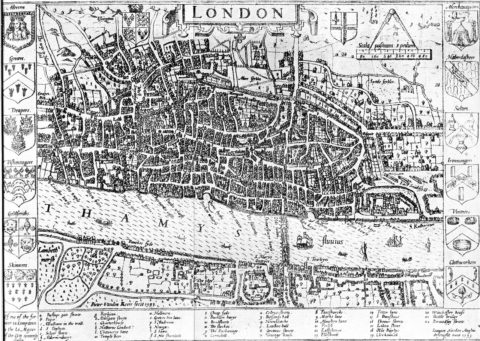
John Norden’s map of London in 1593. There is only one bridge across the Thames, but parts of Southwark on the south bank of the river have been developed.
Wikimedia Commons.
As regular readers will know, I’ve lately been obsessed with England’s various economic transformations between 1550 and 1650 — the dramatic eightfold growth of London, in particular, and the fall in the proportion of workers engaged in agriculture despite the growth of the overall population.
As I’ve argued before, I think that the original stimulus for many of these changes was the increased trading range of English overseas merchants. Thanks to advances in navigational techniques, they were able to find new markets and higher prices for their exports, particularly in the Mediterranean and then farter afield. And they were able to buy England’s imports much more cheaply, by going directly to their source. Although the total value of imports rose dramatically — by 150% in just 1600-38 — the value of exports seems to have risen by even more, as there’s plenty of evidence to suggest that for most of the period England had a trade surplus. The supply of money increased, even though Britain had no major gold or silver mines of its own.
The growing commerce was the major spur to London’s growth, with English merchants spending their profits in the city, and ever-cheaper and more varied luxury imports enticing the nobility from their country estates. Altogether, the concentration of people and wealth in London must have resulted in all sorts of spill-over effects to further drive its growth. After the initial push from overseas trade, I suspect that by the late seventeenth century the city was large enough that it was running on its own steam.
But on twitter, economic historian Joe Francis offered a slightly different narrative. Although he agrees that a change to overseas trade was the prime mover, he suggests that the trade itself was too small as a proportion of the economy to account for much of London’s growth. I disagree, for various reasons that I won’t go into now, but Joe brought to my attention various changes on the monetary side. Inspired by the work of Nuno Palma, he suspects that it was not the trade per se, but the fact of an export surplus that was doing the heavy lifting, by increasing the country’s money supply.
An increased money supply should have facilitated England’s internal trades, reducing their costs, and allowing for greater regional specialisation. Joe essentially thinks that I’ve got the mechanism slightly back to front: instead of London’s growing demands having reshaped the countryside, he contends that the specialisation of the entire country is what allowed for the better allocation of economic resources and workers to where they were most productive — a process from which a large city like London quite naturally then emerged.
I have some doubts about whether this process could really have been led from the countryside. The regional specialisation that we see in agriculture, for example, only really starts to become obvious from the 1600s onwards, by which stage London’s population had already begun to balloon from a puny 50,000 in 1550, to 200,000 and rising. I also haven’t found much evidence of other internal trade costs falling. Internal transportation — by packhorse, river, or down the coast — doesn’t seem to have become all that more efficient. Roads and waggon services don’t show much sign of improvement until the eighteenth century, and not many rivers were made more navigable before the mid-seventeenth century either. This is not to say that England’s internal trade didn’t increase. It certainly did, as London sucked in food and fuel in ever larger quantities, and from farther and farther afield. But it still looks like this was led by London demand, rather than by falling costs elsewhere.
Besides, the influxes of bullion from abroad would have all been channelled through London first, along with most of the country’s trade. To the extent that monetisation made a difference to the costs of trade then, this would have made a difference first in the city, before emanating out to its main suppliers, and then outwards. I thus see the Palma narrative as potentially complementary to my own.
The London Gin Craze and Beyond
Tasting History with Max Miller
Published 26 Jan 2021Help Support the Channel with Patreon: https://www.patreon.com/tastinghistory
Tasting History Merchandise: crowdmade.com/collections/tastinghistoryFollow Tasting History here:
Instagram: https://www.instagram.com/tastinghist…
Twitter: https://twitter.com/TastingHistory1
Tiktok: TastingHistory
Reddit: r/TastingHistory
Discord: https://discord.gg/d7nbEpy
Ketchup with Max: https://www.youtube.com/channel/UC1DL3SXDAdrQs2WE4AMD4SwLINKS TO SOURCES**
Gin: The Much-lamented Death of Madam Geneva by Patrick Dillon: https://amzn.to/39VxZU7
Gin: A Global History by Lesley Solmonson: https://amzn.to/3c8sJzc
The Diary of Samuel Pepys: https://amzn.to/391W64u
The Fable of Bees by Bernard Mandeville: https://amzn.to/3c13Eq8
Sketches by Boz by Charles Dickens: https://amzn.to/3sTMUar**Amazon offers a small commission on products sold through their affiliate links, so each purchase made from this link, whether this product or another, will help to support this channel with no additional cost to you.
Subtitles: Jose Mendoza
MUSIC
“Divertissement” by Kevin MacLeod is licensed under a Creative Commons Attribution 4.0 license. https://creativecommons.org/licenses/…
Source: http://incompetech.com/music/royalty-…
Artist: http://incompetech.com/#tastinghistory #gin #cocktail #gincraze
September 24, 2021
From Handmaid’s Tale cosplay to eco-terrorism
Connor Tomlinson outlines the many performative and disruptive projects of Roger Hallam:
Insulate Britain gluing themselves to the M25 for a week has already produced a four-car collision, with victims airlifted to hospital, and delayed a mother’s treatment, leaving her paralysed by a stroke. Despite these events, activists claim they “don’t accept that we put lives at risk”. It’s vital that legal and cultural action is taken to insulate Britons from this dangerous brand of eco-extremism.
As Dan Wootton’s interview with activist Liam Norton explained, the endangerment of lives to exercise political pressure would classify Insulate Britain as ecological terrorists. The action Insulate Britain wishes to force government to take is “to produce within four months a legally binding national plan to fully fund” the insulation of all Britain’s 29 million homes with taxpayer cash. Essentially, they’re sitting in the motorway, blocking your work commute, so the state can take and spend more of your pay-check.
Insulate Britain is another in a long line of activist vanity projects engineered to make headlines by founder Roger Hallam. Starting with “Stop Killing Londoners” in 2017, Hallam went on to co-create Extinction Rebellion; before being ousted over his comments concerning the Holocaust. But Hallam’s alarmist and extremist rhetoric preceded this insensitive remark. In, 2019, Hallam said “forcing the governments to act” or “bring[ing] them down and create[ing] a democracy fit for purpose” will require “some [to] die in the process”. This “democracy” would, paradoxically, be a “socialist project”, with Hallam in the ideological driving seat.
Hallam’s prior protests demonstrated a similar indifference to human suffering. Hallam was arrested at Heathrow Airport for aiming to fly drones into active airspace and ground commercial flights. His “Heathrow Pause” protests constituted a terror threat, in that drones could cause flights to be grounded or collide and crash. Again, Hallam was willing to risk lives to make headlines.
All of these movements claim the sole solutions to apocalyptic emergencies are the appointment of Hallam himself to a position of public power which lets him implement whichever solutions he deems necessary. His PhD at Kings College on “civil disobedience” exposes Hallam’s own egoism in comparing himself to MLK and Gandhi. This was also an indictment of modern university radicalism; echoed by Dr. Charlie Gardner of the University of Kent making the same comparison in a lecture, calling himself “a hero of our times”, and refusing to disavow Hallam when I challenged him on it.
When I first heard of the M25 protests, I thought they’d be allowed to carry on for a token amount of time to get their actions into the media and then they’d be cleared off by the police. I was quite astonished to find that they were permitted to stay in place for several hours and that the police were being quite solicitous of their health and protecting them from any attempt at counter-protest by the stranded motorists. I’m now worried that the next time they try this, the motorists will have learned that the police aren’t there to enforce the law and be tempted to take it into their own hands.
September 4, 2021
Recreating the original India Pale Ale
In The Critic, Henry Jeffreys discusses the rebirth of the original IPA:
From an early age Jamie Allsopp had wanted to bring back the beer that made his family name. It was his ancestor Samuel Allsopp who made the very first Burton IPA, and created a style that is now a global phenomenon. Hell, there are even brewers in Germany making IPA these days.
Though IPA is most associated with Burton-on-Trent, it was originally brewed in London by Hodgson’s, the nearest brewery to East India Dock. Here East India Company servants would buy beer to sell at a vast profit in India. The beer of choice was a strong, heavily-hopped ale designed to last through the winter months. On the six-month voyage through the tropics, it was found to have matured splendidly, rather like wine from Madeira did. Shipped in the early-nineteenth century, this was the first India Pale Ale, though it wasn’t known as such.
Frederick Hodgson then got greedy and tried to cut out the East India Company by shipping directly. So, Campbell Majoribanks, a director at the Company, approached Burton brewer Samuel Allsopp to make a rival beer. Allsopp brewed a sample in a teapot which met with approval and the beer was shipped to India from 1823.
Burton-on-Trent had an advantage over London in that the water contained gypsum, calcium sulphate, which made the beer brighter and clearer with a pronounced acidic bite. It suited a pale crisp beer, made possible by the recent invention of pale malt, very different to the heavy dark porter that London was famed for.
Other Burton brewers such as Bass & Ratcliff got in on the act. This new beer wasn’t just a hit in India; it became all the rage back in Britain. Railways meant that Burton beer could be sent to London cheaply, and the porter that had dominated the capital began to die out, displaced by this new refreshing beer. Some time in the 1830s the name IPA began to be used.
It was the drink of the aspirant middle class. It would have sold for twice as much as ordinary beer. So popular were Burton beers that by 1877 the Bass brewery was the largest in the world. Bass had the red triangle trademark whereas Allsopp’s symbol was the red hand.
The Allsopp family, like many of the great brewing families, moved into politics. Samuel’s son Henry was elevated to the peerage as 1st Baron Hindlip. In fact, so great was the political influence of brewing families that they were known as “the beerage”. Gladstone attributed the liberal defeat in the 1874 election to this powerful faction: “We have been borne down in a torrent of gin and beer”, he wrote.
But the Allsopp’s brewing heyday did not last long. According to Jamie Allsopp, in 1897, the family “built a big lager brewery and nobody wanted lager and it finished the company”. They were pushed out in 1911 when the firm went into receivership. It soldiered on before merging with another Burton brewer, Ind Coope, in 1934. Following waves of mergers and acquisitions, the name and the famous red hand disappeared in 1959.
September 1, 2021
QotD: The power of nationalistic feelings
As I write, highly civilized human beings are flying overhead, trying to kill me.
They do not feel any enmity against me as an individual, nor I against them. They are “only doing their duty”, as the saying goes. Most of them, I have no doubt, are kind-hearted law-abiding men who would never dream of committing murder in private life. On the other hand, if one of them succeeds in blowing me to pieces with a well-placed bomb, he will never sleep any the worse for it. He is serving his country, which has the power to absolve him from evil.
One cannot see the modern world as it is unless one recognizes the overwhelming strength of patriotism, national loyalty. In certain circumstances it can break down, at certain levels of civilization it does not exist, but as a positive force there is nothing to set beside it. Christianity and international Socialism are as weak as straw in comparison with it. Hitler and Mussolini rose to power in their own countries very largely because they could grasp this fact and their opponents could not.
George Orwell, “The Lion And The Unicorn: Socialism and the English Genius”, 1941-02-19.
August 26, 2021
A New World Order? – The World Power Conference | B2W: ZEITGEIST! I E.24 Summer 1924
TimeGhost History
Published 25 Aug 2021The League of Nations is just one manifestation of a broader ideal in the interwar years. Within a palace in the heart of the British Empire, a new conference is underway. It is attended by everyone from H.G. Wells to the Prince of Wales.
(more…)
August 14, 2021
English wholesalers, Dutch retailers and the expansion of foreign trade by European sailors
In the latest Age of Invention newsletter, Anton Howes considers the changing nature of English foreign trade as possibly one of the main drivers of the unprecedented growth of London from 1550-1650, and how both English and Dutch sailors differed from most of the rest of Europe:
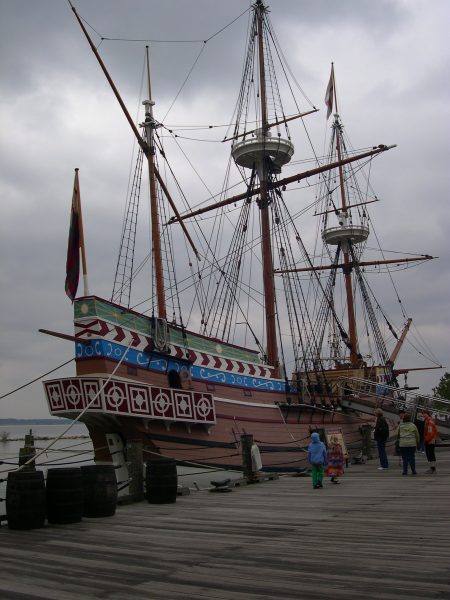
An English merchant ship of the late 16th to early 17th century: this is a replica of the Susan Constant at the Jamestown Settlement in Virginia. The original ship was built sometime before 1607 and rented by the Virginia Company of London to transport the original settlers to Jamestown.
Photo by Nicholas Russon, March 2004.
I am fairly convinced that this transformation was sparked by the changing nature of England’s trade, with its merchants taking near-total control of it themselves, whereas once they had relied on foreign merchants to bring many of their imports to them. And thanks to their adoption of celestial navigation techniques from the Iberians and Italians — learning to read the stars, to find their latitude at sea — the English gained the ability to discover new routes, noting details down for others to come back again and again and create more permanent new trades. In merchants’ parlance of the time, the English increasingly went in search of “the well head” — to buy things at source, where they were cheapest.
This sounds like the common-sense thing to do. But it was surprisingly rare. Very few countries’ merchants attempted to take advantage of such opportunities for arbitrage — to buy where things were cheapest and sell them where they were most expensive. Even the English themselves, despite their newfound search for well heads, rarely exploited arbitrage opportunities to the full. Although they bought at source, they tended, at first, to sell the goods they’d acquired back in London, to serve English consumers rather than taking them to wherever the goods would sell for the highest prices. This was instead the strategy of the Dutch, whose trading techniques were by 1600 said to surpass all others. Indeed, the Dutch were also some of the only merchants who discriminated on prices within markers, “not shaming to retail any commodity by small parts and parcels”, as one English merchant complained, charging a multitude of buyers according to what they thought they could get from them — something that “both English merchants and Italians disdain to do in any country whatsoever.” It was seemingly considered beneath them.
I’m not wholly clear why the English only sold wholesale when they knew that price discrimination was a Dutch advantage. It seems, at first, to be irrational. But I suspect it had something to do with the wider difficulties of trading abroad. For the English and Dutch were quite unusual in Europe in the early seventeenth century for being among the only merchants willing to risk sailing to shores where their own rulers held no sway.
The Hanseatic merchants of the North Sea and Baltic, who had once been dominant in London, had been stripped of their privileges there and displaced by the English, later confining themselves largely to the Baltic. German mercantile efforts were otherwise generally concentrated inland. And French merchants were apparently under-capitalised, or so the English suspected, because “gentlemen do not meddle with traffic, because they think such traffic ignoble and base”. French merchants did occasionally sail down the Atlantic coast to Spain, and into the Mediterranean to trade with Italy and the Ottoman Empire, but overall they were content to have third parties to come to them — there was always the attraction to foreign merchants of being able to buy French wines, salt, linens, and grain.
As for the once-great Italians, they had apparently been impoverished by the Portuguese discovery of a direct route around Africa to the Indian Ocean, and perhaps by the depredations of various Mediterranean predators too — Algerian corsairs, Ottoman galleys, and the like. Although their rulers could themselves be merchants — the Grand Duke of Tuscany, a Medici, was considered the greatest merchant of them all — by this stage the Italians only rarely ventured far abroad themselves, except over land. Indeed, the English considered them impious for not risking the seas, accusing them of blasphemy for not trusting their lives and livelihoods to God. Whereas the Venetian merchant-nobility had once been required to spend time aboard ship, English commentators by 1600 noticed that their mariners were now overwhelmingly Greek. “Their customs have decayed, their ships rotted and their mariners, the pride of their commonwealth all become poltrones” — that is, loafers or idlers — “and the worst accounted in all those seas”. A Tuscan exploration of the coast of South America in 1608, to look into founding a colony in what is now French Guiana, had to be captained and piloted by Englishmen. What reputation the Italians maintained was as financiers and money-exchangers — perhaps because the Genoese were the only merchants permitted to take the vast quantities of New World silver out of Spain.
August 1, 2021
July 31, 2021
English sea-borne trade in the early 17th century
In the latest Age of Invention newsletter, Anton Howes reviews a book on English trade … a very old book:
I’ve become engrossed this week by a book written in 1638 by the merchant Lewes Roberts — The Marchant’s Mappe of Commerce. It is, in effect, a guide to how to be a merchant, and an extremely comprehensive one too. For every trading centre he could gather information about, Roberts noted the coins that were current, their exchange rates, and the precise weights and measures in use. He set down the various customs duties, down even to the precise bribes you’d be expected to pay to various officials. In Smyrna, for example, Roberts recommended you offer the local qadi some cloth and coney-skins for a vest, the qadi‘s servant some English-made cloth, and their janissary guard a few gold coins.
Unusually for so many books of the period, Roberts was also careful to be accurate. He often noted whether his information came from personal experience, giving the dates of his time in a place, or whether it came second-hand. When he was unsure of details, he recommended consulting with better experts. And myths — like the rumour he heard that the Prophet Muhammad’s remains at Mecca were in an iron casket suspended from the ceiling by a gigantic diamond-like magnet called an adamant — were thoroughly busted. Given his accuracy and care, it’s no wonder that the book, in various revised editions, was in print for almost sixty years after his death. (He died just three years after publication.)
What’s most interesting about it to me, however, is Roberts’s single-minded view of English commerce. The entire world is viewed through the lens of opportunities for trade, taking note of the commodities and manufactures of every region, as well as their principal ports and emporia. A place’s antiquarian or religious tourist sites, which generally make up the bulk of so many other geographical works, are given (mercifully) short shrift. Indeed, because the book was not written with an international audience in mind, it also passes over many trades with which the English were not involved, or from which they were even excluded. It thus provides a remarkably detailed snapshot of what exactly English merchants were interested in and up to on the eve of civil war; and right at the tail end of a century of unprecedented growth in London’s population, itself seemingly led by its expansion of English commerce.
So, what did English merchants consider important? It’s especially illuminating about England’s trade in the Atlantic — or rather, the lack thereof.
Roberts spends remarkably little time on the Americas, which he refers to as the continents of Mexicana (North America) and Peruana (South America). Most of his mentions of English involvement are about which privateers had once raided which Spanish-owned colonies, and he gives especial attention to the seasonal fishing for cod off the coast of Newfoundland — a major export trade to the Mediterranean, and a source of employment to many English West Country farmers, who he refers to as being like otters for spending half their lives on land and the other half on sea.
But as for the recently-established English colonies on the mainland, which Roberts refers to collectively as Virginia, he writes barely a few sentences. Although he reproduces some of the propaganda about what is to be found there — no mention yet of tobacco by the way, with the list consisting largely of foodstuffs, forest products, tar, pitch, and a few ores — the entirety of New England is summarised only as a place “said to be” resorted to by religious dissenters. The island colonies on Barbados and Bermuda were also either too small or too recently established to merit much attention. To the worldly London merchant then, the New World was still peripheral — barely an afterthought, with the two continents meriting a mere 11 pages, versus Africa’s 45, Asia’s 108, and Europe’s 262.
The reason for this was that the English were excluded from trading directly with the New World by the Spanish. It was, as Roberts jealously put it, “shut up from the eyes of all strangers”. The Spanish were not only profiting from the continent’s mines of gold and silver, but he also complained of their monopoly over the export of European manufactures to its colonies there. It’s a striking foreshadowing of what was, in the eighteenth century, to become one of the most important features of the Atlantic economy — the market that the growing colonies would one day provide for British goods. Indeed, Roberts’s most common condemnation of the Spanish was for having killed so many natives, thereby extinguishing the major market that had already been there: “had not the sword of these bloodsuckers ended so many millions of lives in so short a time, trade might have seen a larger harvest”. The genocide had, in Roberts’s view, not only been horrific, but impoverished Europe too (he was similarly upset that the Spanish had slaughtered so many of the natives of the Bahamas, known for the “matchless beauty of their women”).
July 29, 2021
Buster Keaton, British Imperialism, and the Era of Spectacle | B2W: ZEITGEIST! I E.23 Spring 1924
TimeGhost History
Published 28 Jul 2021There’s no business like show business and in the spring of 1924, you can see why. Buster Keaton and Hollywood as a whole are producing some iconic films, the British Empire is putting on a massive exhibition, and there is even talk of a death ray.
(more…)

